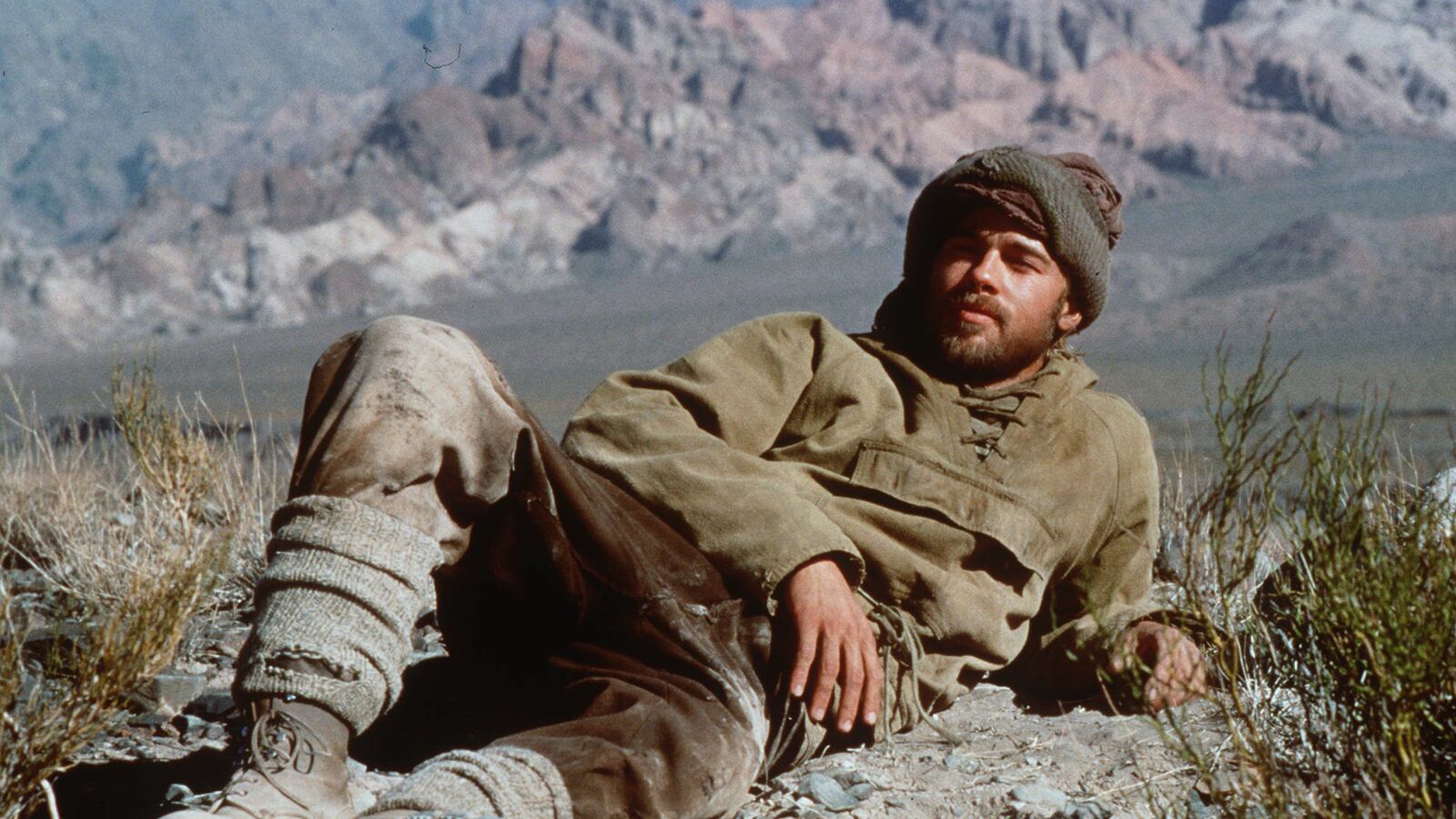He was coming, but now, apparently, he isn’t.
Fans take notice when a Hollywood star tweets—especially when it’s Brad Pitt messaging for the first time on the Twitter-like Chinese microblogging service known as Sina Weibo, which has as many as 400 million users. (On the Chinese mainland, access to Twitter itself, as well as to Facebook and YouTube, is blocked by the Great Firewall of China.) Pitt inaugurated his new Weibo account with the cryptic message: “It is the truth. Yup, I’m coming....”

The enigmatic comment sent his Chinese fans into a tizzy, generating tens of thousands of responses and sending more than 160,000 new followers to the account. After all, many had assumed Pitt was banned from visiting China in 1997 after playing the role of the young Dalai Lama’s Austrian tutor in Seven Years in Tibet, a film criticized for its portrayal of Chinese officials in a manner Beijing deemed overly brutal and arrogant. At the time, official Chinese media vowed that Beijing would never forgive the “biases” of Seven Years—nor would it forgive Martin Scorsese’s Kundun and Richard Gere’s Red Corner, other Hollywood films dealing with China. The nation’s Foreign Affairs Ministry routinely denounces the now exiled 14th Dalai Lama, who lives in India.
And then, on Tuesday, a twist. Pitt’s tweet vanished, replaced by a routine service message: “He hasn’t tweeted yet.” It wasn’t clear if Pitt or his entourage had deleted the post themselves, or whether it was the work of Chinese censors who routinely scrub messages and even entire accounts deemed overly controversial.
So, is he coming or isn’t he? Pitt has never been to China, although many of his films—the ones that aren’t banned, that is—are popular, and he has an enthusiastic fan following. One admirer responded in English to his initial post, “Oh my god, it is really a big surprise. And welcome!! Hope u use [Weibo] frequently.”
That was pretty representative of the response, Beijing publisher and blogger Wang Xiaoshan tells The Daily Beast. “Many people tweeted back,” Wang says. “Some said, ‘Welcome and love you very much’ ... Some said he’s handsome. Some said his wife is even more welcome in China.” Others had varying interpretations of the words “I’m coming.”
If Pitt’s future presence in China is still unclear, what is clear is that international performers and other celebrities are looking to Chinese microblogs like Weibo to expand their fan base. Hollywood VIPs have flocked to China increasingly over the past decade, accelerating in 2002 after Quentin Tarantino was sighted making late-night forays for takeout and ice cream while filming Kill Bill in Beijing. Last year Keanu Reeves was spotted in the capital; before that, Gwyneth Paltrow took to the stage in a nightclub for an impromptu gig. So it was only a matter of time before the stars signed up on Weibo. Tom Cruise has been tweeting on Weibo for a couple of years and has 5 million followers. A year ago action star Dwayne “the Rock” Johnson launched a Weibo account to help publicize his adventure film The Journey 2: The Mysterious Island. Some 780,000 supporters follow former NBA star Stephon Marbury on Weibo; he now plays for the Beijing Ducks and communicates with fans regularly on the service. (After helping his team win the Chinese Basketball Association championship in April, a life-size bronze statue was made in his likeness. Marbury tweeted: “I can’t begin to thank you…words cannot explain how I feel.”)
“A lot of foreign celebrities, like movie stars and sports stars, use Weibo,” says Zhu Dake, a prominent culture critic at Tongji University in Shanghai. “They all have followers who love them ... Their aim is to generate publicity and boost ticket sales. People are interested in their private lives and especially their love affairs.”
Although the politicization of Pitt’s role in Seven Years will not be totally forgotten, Beijing authorities may consider it water under the bridge. “I like him and his wife, and there are many of his followers in China,” says Wang, the blogger. “It’s my personal view that he’ll be allowed to visit China if he wants to. He’s different from Richard Gere, who often makes anticommunist comments. Pitt seldom talks against communism.”
In fact, Seven Years director Jean-Jacques Annaud, who had also been banned from visiting China due to his film, was welcomed last year to chair the Shanghai International Film Festival jury. Pitt’s many Chinese fans will now be watching and waiting for news of a possible visit—not a bad ploy for the star, whose production company Plan B Entertainment is expected to release the much-awaited film World War Z later this year. Presented as an oral history of the zombie pandemic, seen through the eyes of a U.N. employee played by Pitt, the movie is based on Max Brooks’s 2006 post-apocalyptic horror novel of the same name, which opens in the Chinese megalopolis of Chongqing. There, a young boy bitten by creepy creatures becomes the pandemic’s Patient Zero.
That’s right, the zombie apocalypse begins in China—which could become a whole new reason why Brad Pitt gives Beijing the jitters.






